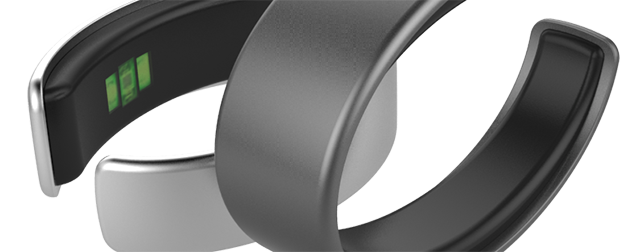Researchers at the Fraunhofer Institute for Reliability and Microintegration (IZM) in Berlin are working on a sensor and software package that would help people developing dementia to slow down the disease progression and enhance the quality of life for themselves and their family members. The device is a wristband that measures the patient’s vital signs, physical activity, and environmental data. The information is combined with data from the patient’s family and healthcare personnel to provide ongoing advice, notify on disease progression, and aid the patient with normal day-to-day activities. The system has already been tested on patients.
Read more Imec’s Wireless Eye-Tracking Glasses Will Help Research Neurological Disorders
Dementia is a general term that describes a group of symptoms associated with a decline in memory and cognition severe enough to reduce a person’s ability to perform normal day-to-day activities. It is an age-related neurodegenerative condition that is becoming more prevalent with the demographic changes. Approximately there are 47.5 million living with dementia globally, with 7.7 million new cases diagnosed each year. It is estimated that 1 out of every six women and one out of every 10 men, living past the age of 55 will develop dementia. Alzheimer’s disease is the most common form of dementia. Diagnosing dementia as early as possible means better care for the patient and greater opportunity for persuading the disease progression. An early warning system therefore, will provide a greater security in patient care.
Scientists at the IZM, in collaboration with partners from industry and research, thus launched the PYRAMID project to develop a new care method focused on stabilizing and enhancing the quality of life of people living with dementia and their families/friends and, working closely with doctors and caregivers, offering greater patient security. So, they created a small, modular measurement and advisory system in the form of a wristband that automatically measures the necessary health and care information of the dementia patient with unobtrusive, barely noticeable sensors. Based on the data it collects, the wristband then suggests and implements personalized treatment and care options for the patient.
Read more Michael J. Fox Foundation’s Collaboration with Verily Aims to Deepen Understanding of Parkinson’s
“The goal is to discreetly accompany patients over the course of years, from the first tentative diagnosis through to clinical treatment, to put up-to-date information at their fingertips, increase patient autonomy and give them the opportunity to stay in their familiar environment for as long as possible,” explains Erik Jung, a physicist at the Fraunhofer IZM.
The system is fully incorporated in a wristband that carefully houses all the electronics and sensors. The data is recorded via a microcontroller. The other components that make up the system are: a Bluetooth module to relay the data to the caretakers and physicians, a USB port, a rechargeable battery and an NFC antenna that acts as an automatic door opener.













